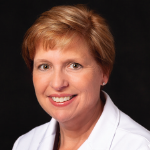
LEHOSHCHINA HALYNA / shutterstock.com
Many, if not all, rheumatologists seek to grow as clinicians so they can provide consistently exceptional care to patients and serve as role models for colleagues and trainees. In The Rheumatologist’s Lessons from Master Clinicians series, we present insights from clinicians who have achieved distinction in the field of rheumatology and who are respected by other rheumatologists for their exceptional clinical reasoning, knowledge across a wide range of medical specialties and patient-centered care.
Beth Jonas, MD, FACR, is the Reeves Foundation Distinguished Professor of Medicine and chief of the Division of Rheumatology, Allergy and Immunology at the University of North Carolina at Chapel Hill School of Medicine. Dr. Jonas is a nationally recognized clinician educator and has been instrumental in establishing one of the country’s top-tier rheumatology fellowship training programs. In recognition of her leadership and vision, Dr. Jonas was given the ACR Distinguished Fellowship Program Director Award in 2015. Her work in developing a novel curriculum in rheumatology is supported by a Rheumatology Research Foundation Clinician Scholar Educator Award. Dr. Jonas also chairs the ACR’s Committee on Rheumatology Training and Workforce Issues.
TR: In your opinion, what makes for a master clinician?
Dr. Jonas: A master clinician must be a natural problem solver, someone who is skilled at and greatly enjoys figuring out mysteries. He or she must be comfortable with uncertainty and be able to look at each situation with an open mind so as to be able to consider all perspectives and possibilities.
As many rheumatologists know from clinical experience, the puzzle does not always come together perfectly. [Because] the practice of rheumatology is rarely straightforward, the master clinician must be thoughtful and creative when approaching a diagnostic quandary. There must also be a dedication to caring for each patient as a person, in a holistic fashion.
‘We must not assume that we know the patient’s goals & expectations. … It is … important to understand what patients want out of their treatment.’ —Dr. Jonas
At the same time, there should be a commitment to teaching patients and trainees alike. Many elements of rheumatology are complicated and do not make natural sense to patients. Thus, it is our duty as clinicians to explain our clinical reasoning to patients and answer all of their questions.
Over the course of a career, physicians continually acquire new knowledge, but it is the master clinician who is able to translate this knowledge into action, such as through counseling patients, teaching fellows and other learners, and using new evidence and knowledge to inform diagnosis and treatment. The master clinician is flexible and self-critical in the approach to care, is cognizant of his or her own strengths and weaknesses, and is willing to say, ‘I have not seen this before.’ It is through such humility and eagerness to learn from patients and students that the master clinician can grow and evolve.
TR: What are some habits a fellow in training or junior rheumatologist can incorporate into daily practice to build on their skills as a clinician?

Dr. Jonas
Dr. Jonas: It is important to listen very carefully to your patients and be mindful and present in each encounter. Before I go into a room with a patient, I mentally prepare myself to be ready for the visit. Many things may be happening in life—pagers buzzing, a child sick at home, etc.—but focusing on the patient in front of me helps me truly listen to them. This is important [because] patients provide a great deal of essential clues and pieces of information that help contribute to evaluation of their symptoms.
I try to enter each visit with an open mind and draw my own conclusions based on what they tell me. I attempt to not ignore parts of the story that do not fit into my preconceived notions; doing so may lead [us] down the wrong path or prevent a breakthrough in thinking about that patient’s story.
There is a lot of uncertainty in rheumatology, and I do not neglect this fact. When I do not know something, I readily admit this to the patient and both make a note to myself and make a promise to the patient to fill this gap in knowledge.
TR: What lessons have you learned from patients that have contributed to your own growth as a clinician?
Dr. Jonas: Patients know so much, and we give them no credit for this. With challenging and difficult cases, the times when I can achieve a breakthrough and make progress occur when I am able to truly pay attention to what the patient is saying. Patients will recognize this and tell me, ‘You really listened to what I have to say.’ It does not take a lot of time to listen intently. It also makes you more believable when you ask a patient to take a next step in his or her workup or care.
I have also learned it is important to meet patients where they are and go along on the journey with them. We must not assume that we know the patient’s goals and expectations; we often have lofty goals for what [represents] success, and patients may have more modest and practical goals. It is, therefore, important to understand what patients want out of their treatment.
We should also consider how giving a new diagnosis to patients greatly affects their lives and their self-perception, and I have seen that it is worth taking the up-front time to let patients discuss these feelings with us as they learn more about their condition.
TR: What are the specific areas of triumph and challenges facing women seeking to become leading clinicians in the field of rheumatology—and in medicine in general?
Dr. Jonas: The biggest issue over the course of my career—at least in the beginning—was the relative lack of female role models in clinical and leadership positions. There were not a lot of women who we could look at and say, ‘This is the path I want to be on.’ This has improved, and rheumatology has been particularly good in evolving as a field, but there are still not enough women in the highest leadership roles.
Many of us have had strong competing priorities with professional and personal goals; men also often find this to be a challenge. Families are somewhat more egalitarian these days, and if everyone takes care of family life equally, this helps men and women share responsibilities. This is a system problem, and we are slowly getting better with this issue as we continue to address it in academic medicine and beyond.
 Jason Liebowitz, MD, recently completed a fellowship in rheumatology at Johns Hopkins University, Baltimore, where he also earned his MD. He completed his residency at Johns Hopkins Bayview.
Jason Liebowitz, MD, recently completed a fellowship in rheumatology at Johns Hopkins University, Baltimore, where he also earned his MD. He completed his residency at Johns Hopkins Bayview.



